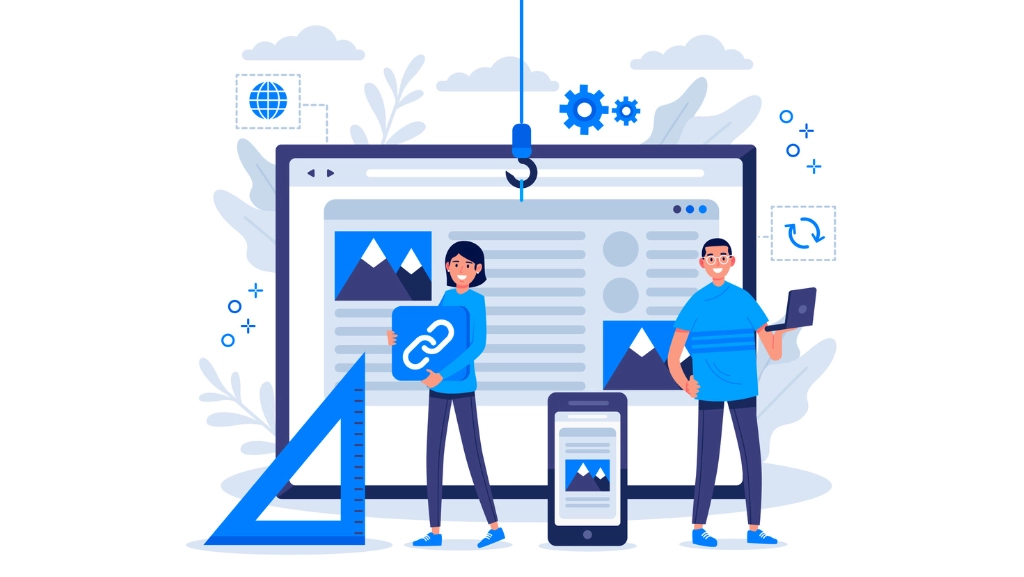
Digital marketing has become an essential tool for businesses aiming to expand and thrive in the modern marketplace. By leveraging digital platforms, companies can reach broader audiences, engage with customers more effectively, and optimize their marketing strategies in ways that traditional marketing cannot. Here’s how digital marketing can significantly contribute to business growth.
1. Wider Audience Reach
One of the most immediate benefits of digital marketing is its ability to reach a global audience. Unlike traditional marketing methods, which are often limited by geography and cost, digital marketing enables businesses to connect with potential customers worldwide. Through social media, search engine optimization (SEO), content marketing, and pay-per-click (PPC) advertising, businesses can target specific demographics and expand their customer base far beyond local markets.
2. Cost-Effective Marketing Solutions
Digital marketing is generally more cost-effective than traditional marketing methods such as print ads, television, or radio. For example, social media marketing can be done with little to no financial investment, especially if businesses focus on organic growth through engaging content. Even paid strategies, like PPC campaigns, offer more flexibility in budgeting, allowing businesses to start small and scale their efforts based on performance. This cost-effectiveness makes digital marketing accessible to businesses of all sizes, including startups and small enterprises.
3. Measurable Results
One of the significant advantages of digital marketing is the ability to track and measure results in real time. Tools like Google Analytics, social media insights, and email marketing metrics provide valuable data on how campaigns are performing. Businesses can see which strategies are working and which need adjustment, enabling them to optimize their efforts for better results. This data-driven approach ensures that marketing budgets are used efficiently, leading to a higher return on investment (ROI).
4. Enhanced Customer Engagement
Digital marketing allows businesses to engage with customers in more personalized and interactive ways. Through social media platforms like Facebook, Instagram, and Twitter, companies can interact directly with their audience, respond to queries, gather feedback, and build relationships. Content marketing, such as blogs, videos, and newsletters, allows businesses to provide value to their customers, educate them, and keep them informed about products or services. This continuous engagement helps build brand loyalty and encourages repeat business.
5. Targeted Marketing
One of the most powerful aspects of digital marketing is the ability to target specific audiences. Through techniques like SEO, businesses can attract customers actively searching for their products or services. Social media ads can be targeted based on age, location, interests, and behaviors, ensuring that marketing efforts reach those most likely to convert. This level of precision in targeting reduces waste and increases the likelihood of reaching potential customers.
6. Improved Conversion Rates
Digital marketing strategies often lead to higher conversion rates compared to traditional methods. With tactics like email marketing, retargeting ads, and personalized content, businesses can guide prospects through the sales funnel more effectively. The use of call-to-action buttons, landing pages, and automated email sequences can nurture leads until they are ready to make a purchase. This focused approach to driving conversions can significantly boost sales and revenue.
7. Building Brand Reputation
Consistency in digital marketing efforts helps build a strong brand reputation. By maintaining an active online presence, sharing valuable content, and engaging with customers, businesses can establish themselves as industry leaders. Positive reviews, testimonials, and user-generated content further enhance credibility and trust, which are crucial for long-term success.
8. Scalability
Digital marketing offers scalability that traditional marketing cannot match. Campaigns can be easily scaled up or down based on performance, budget, and business goals. This flexibility allows businesses to grow at their own pace, adapting to market changes without the need for significant additional investment.
Conclusion
Digital marketing is a powerful tool that can drive business growth in multiple ways. From reaching a wider audience and reducing costs to enhancing customer engagement and improving conversion rates, the benefits are vast. By embracing digital marketing, businesses can not only survive in the competitive marketplace but also thrive and expand their reach, ultimately leading to sustained growth and success.

Contact Us - For Our Services